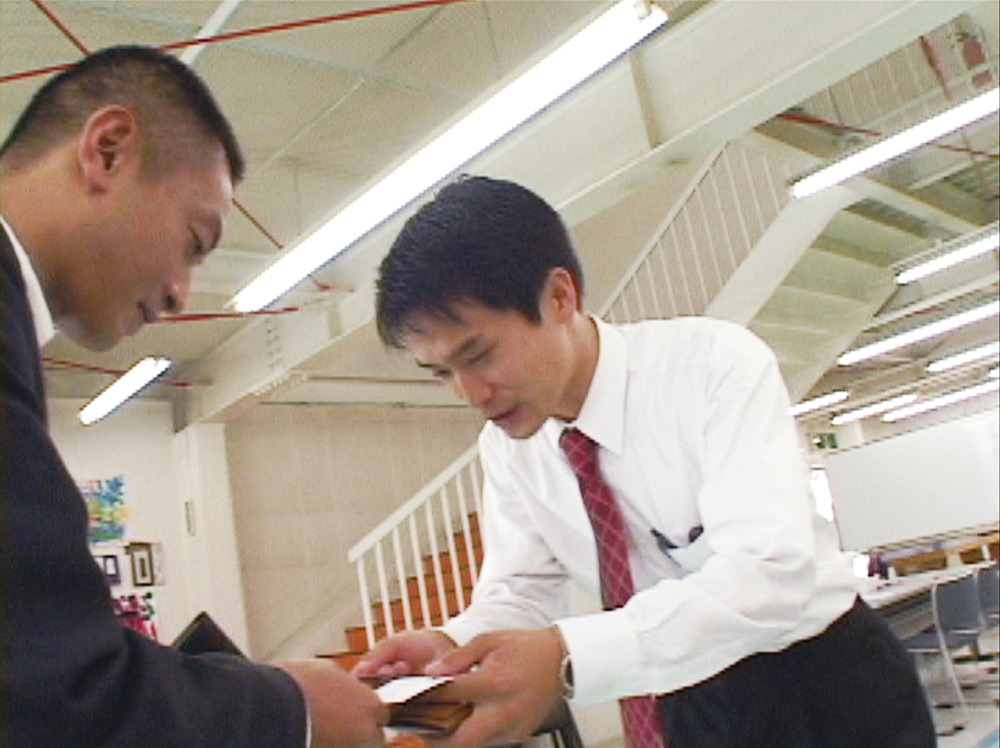!["Why Can't You Become Prime Minister?" Director Arata Oshima A rare politician documentary that has reached a high level of entertainment [Director's Interview Vol.63]](https://cinemore.jp/images/d3bc4e60ac585ac9f4216d7e7870ec4e9a57b7772bb8aa6d1af0be61aeb03b45.jpg)
"Why Can't You Become Prime Minister?" Director Arata Oshima A rare politician documentary that has reached a high level of entertainment [Director's Interview Vol.63]
The documentary film ``Why Can't You Be Prime Minister?'' currently in theaters is filling theaters even on weekdays. Initially, it was only screened in two theaters in Tokyo, but enthusiasm has spread and the film is now being shown nationwide. (*At the time of article publication in July 2020.Currently being distributed on VOD such as Amazon Prime. )
Junya Ogawa, a member of the House of Representatives from Kagawa Prefecture, abandoned his position as an elite bureaucrat and entered the world of politics. This film, which depicts his 17 years of struggle, combines in-depth research, skillful editing, and the charm of the subject to create a highly complete piece of entertainment that keeps the audience glued to the screen.
The director is Arata Oshima, who has released many masterpiece documentaries on TV and in movies. We heard the story behind the creation of this work and the surprising behind-the-scenes details.
Index
- The starting point of the movie is, ``Why is this person so talented, but it doesn't work out?''
- Even though it is a party of hope, the election campaign is full of drama: “Overthrow, Yuriko Koike!”
- The biggest and only performance of this movie
- A scene was hastily added just before the release to express the coronavirus pandemic.
- Why is it difficult for politics to become entertainment in Japan?
The starting point of the movie is, ``Why is this person so talented, but it doesn't work out?''
Q: I was surprised at how genuinely interesting the film turned out to be, even though the subject, a politician, seemed at first glance to be unassuming and difficult. This is a must-see for people who tend to avoid documentaries.
Oshima: I have a lot of thoughts about the current political situation, but first and foremost I wanted to make an interesting documentary, so I'm happy to hear that.
Q: I heard that the impetus for producing it was a documentary program on Fuji TV in 2003.
Oshima: Yes. Actually, my wife was a high school classmate of Mr. Ogawa's wife, and when I heard that someone like this is going to run for election in Kagawa next time, I immediately started running his campaign without even making a plan. I interviewed him.
So when I talked to Fuji TV, they said, ``It looks interesting, but you can't make it into a program with just one person.I want you to interview at least three people and make it into an omnibus.''
So, after that, I interviewed an independent man in Asahikawa and a woman from the Social Democratic Party in Yokohama, and created a documentary called ``No Grounds, No Signs, No Bags'' with an omnibus of those three people.

Q: 17 years have passed since then, but why did Director Oshima decide to make a movie about Mr. Ogawa?
Oshima: Simply put, the question is, ``Why is this person so honest and talented, but things don't work out?'' When I first met him in 2003, I asked him, ``Do you want to be prime minister?'' He said, ``I want to be a politician, so I'm aiming for that.'' But if you chase after him, doesn't it seem useless? and.
I had always said, ``I want to be at the top since my mid-40s, do a good job for a few years, and then retire from the Diet,'' but by 2016 I was already 45 years old. I thought, ``You don't have any eyes, right?'' and asked my camera to tell me what the reason was. That's the starting point for this movie.
Q: Looking back from 2003, when Mr. Ogawa started his political activities, to now, I get the impression that Japanese politics has tilted significantly towards populism. In other words, politicians with strong characters became stronger in elections.
Oshima: It's exactly as you said. Politicians who spoke harshly and made strong statements became popular. The same is true around the world, for example with politicians such as President Trump of the United States. In Japan, it would be Junichiro Koizumi and Toru Hashimoto.
However, in this situation, Ogawa-san tries to be polite, so he ends up talking a little long, and because he is considerate of other people's feelings, he uses a lot of adjectives.
He goes on to say, ``If a politician wins with a majority vote of 51 to 49, he or she has to bear the feelings of the 49 people who lost.'' That is exactly Mr. Ogawa. However, people who care about the losing side are increasingly falling outside the mainstream of current politics. I thought he would have a hard time succeeding in populist politics.
Q: I checked Mr. Ogawa's policies on his website, and it seems that he is not extremely liberal.
Oshima: Even in the movie, he says, ``I'm not as far to the right as Seiji Maehara, but I'm not as far to the left as Yukio Edano.'' Mr. Ogawa was a bureaucrat at the Ministry of Internal Affairs and Communications, so he knows the importance of running a country. That's why I'm different from traditional opposition members who oppose everything.
Mr. Ogawa believes that if something like a two-party system were to be created, 80% to 90% of the policies of conservative and liberal parties should be the same, and the remaining 1 to 20%. When there is a conflict between the interests of the state and the people, conservative parties choose the side of the state, while liberal parties choose the side of the people. That's why people sometimes say, ``In the past, he could have been a dovish member of the Liberal Democratic Party.''

